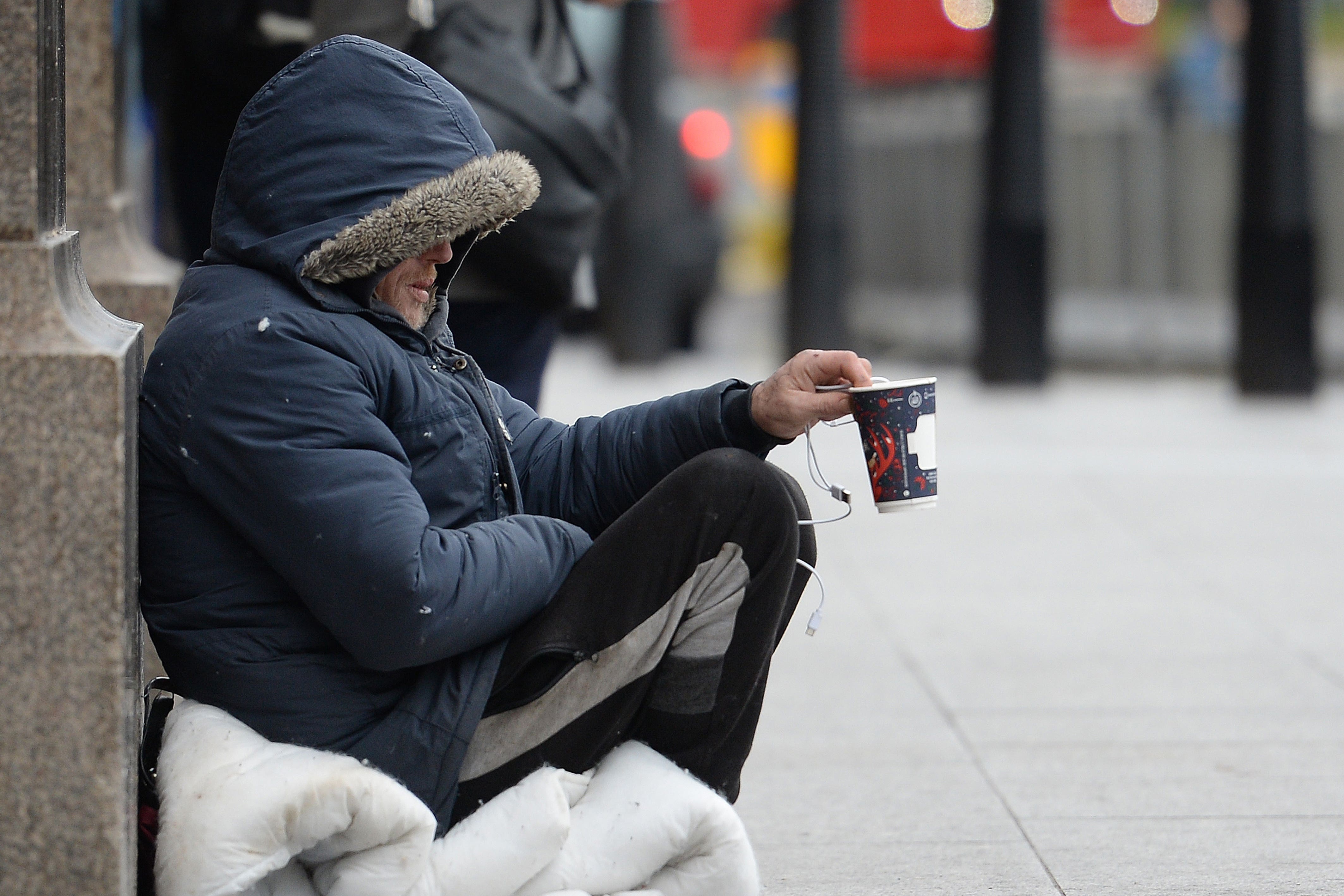Councils struggling to cope with rising levels of homelessness, says charity
Core homelessness includes people sleeping rough, sofa-surfing, and in unsuitable temporary accommodation, Crisis said.

Your support helps us to tell the story
From reproductive rights to climate change to Big Tech, The Independent is on the ground when the story is developing. Whether it's investigating the financials of Elon Musk's pro-Trump PAC or producing our latest documentary, 'The A Word', which shines a light on the American women fighting for reproductive rights, we know how important it is to parse out the facts from the messaging.
At such a critical moment in US history, we need reporters on the ground. Your donation allows us to keep sending journalists to speak to both sides of the story.
The Independent is trusted by Americans across the entire political spectrum. And unlike many other quality news outlets, we choose not to lock Americans out of our reporting and analysis with paywalls. We believe quality journalism should be available to everyone, paid for by those who can afford it.
Your support makes all the difference.Almost a quarter of a million households across England are struggling with the worst forms of homelessness, according to research which suggests the situation has worsened in the past decade.
Many councils across the country are facing a rise in people experiencing homelessness, Crisis said.
The charity estimated that approximately 242,000 households were affected by core homelessness in England in 2022.
It defined core homelessness as capturing some of the most severe and immediate forms of homelessness, such as people sleeping rough, sofa-surfing, living in hostels, refuges and shelters, and placed in unsuitable temporary accommodation.
Crisis said the 2022 estimate – from analysis of a range of data including Government statistics and specialised surveys of users of homeless services – was up from 221,000 in 2020 and 206,000 a decade earlier in 2012.
Meanwhile, its online survey of local authorities which was completed by around half (155) of English councils found that the majority (85%) of respondents said they were facing an increase in people experiencing homelessness.
Some 88% of councils reported an increase in requests for support from those evicted from the private rented sector, while 93% of respondents said they anticipated a further rise in these requests for support over the coming year.
Crisis said the annual study, led by Heriot-Watt University and funded by the charity, draws on its councils survey, statistical analysis and in-depth interviews.
It said the findings are the “strongest evidence yet of how the cost-of-living crisis, rising rents and widespread destitution are driving up homelessness levels and making it harder for councils to provide people with effective support”, adding that local authorities are “running out of options”.
The alarm bells are ringing loud and clear
Matt Downie, chief executive at Crisis, said: “It comes as no surprise that councils are reporting that they are running out of temporary accommodation. For too long the emphasis has been on managing homelessness, not building the social homes we need to provide security to low-income households.
“The alarm bells are ringing loud and clear. The Westminster Government must address the chronic lack of social housing and increase housing benefit, so it covers the true cost of rents. We cannot allow this situation to escalate further and consign more lives to the misery of homelessness.”
Professor Suzanne Fitzpatrick, from Heriot-Watt University, said: “This report highlights how councils across the country are facing an impossible situation. With record numbers of people experiencing homelessness, the vast majority of councils are expecting this already dire situation to become even worse.
“Without access to affordable private rented homes or social housing, we are only going to see more and more households forced into homelessness. We need to address the root causes that are pushing people into homelessness in the first place to ensure that everyone has a safe place to call home.”
A Government spokesperson said: “We are determined to prevent homelessness before it occurs. Temporary accommodation ensures no family is without a roof over their head, but we have been clear that the use of B&Bs should always be a last resort.
“We have given £2 billion over three years to help local authorities tackle homelessness and rough sleeping, targeted to areas where it is needed most.
“We are set to spend over £30 billion on housing support this year, on top of significant cost-of-living help worth around £3,300 per household. We’ve also maintained our £1 billion boost to Local Housing Allowance, while our discretionary housing payments provide a safety net for anyone struggling to meet their rent or housing costs.”